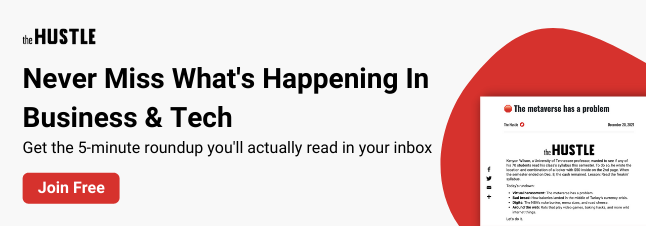There’s been a lot written about the future of work in recent years, partially spurred by the pandemic. Beyond the trend of a more remote workforce, building a work environment that not just works for but also inspires the next generation is top of mind for many of the executives I’ve spoken to in the last few months — from CEO of the Lego Group to founder of global employment platform G-P.
Often, as the youngest leader in the room, I get asked this question: “What exactly does the next generation workforce want from me as a leader?”
Why this matters now
This question is increasingly important: We’re in the midst of an enormous generational shift, one that is shaped by technological advancements from social media to ChatGPT.
According to Gallup, Gen Z and millennials now make up nearly half (46%) of the full-time U.S. workforce, and market research firm McCrindle expects Gen Z to make up 27% of the workforce by 2025.
Great leaders understand that each generation demands a different type of leadership. Against the backdrop of the “Great Renegotiation” coupled with an uncertain economic outlook, what this looks like is increasingly complex.

A purpose- and values-driven generation
This may seem a belabored point, but one that’s often poorly understood by leaders. The joke I’ve heard within boardrooms is to “communicate some sort of purpose, and give unlimited vacation time, free food, and beanbags.” And yet why are workers still unhappy and disengaged?
Contrary to the negative connotation of the next generation being “entitled”, they are in fact a purposeful and values-driven generation.
On purpose
While the majority of the baby boomer generation were focused on “putting food on the table,” and did not necessarily equate their purpose with their job, the next generation was brought up in a more privileged position.
Many seek meaning within their careers, with the thesis of Simon Sinek’s Start with Why to Sheryl Sandberg’s Lean In deeply ingrained in their psyche.
The covid pandemic further led workers to reevaluate what they want from a job (and from life), creating a large pool of workers who are shunning the traditionalist path of merely seeking compensation, titles, and advancement opportunities.

While those elements are still important, what stands out is the deep desire for the next generation to find a place where they are empowered to deliver impact beyond profits, and develop a sense of belonging. This means that besides a place to work and “execute on orders,” the next generation is also searching for a sense of ownership.
A great example I’ve seen is in Gusto, a software payroll company. Former Gusto employee turned venture capitalist Cathy Gao says the company baked in an ownership and empowerment mentality from Day One.
Josh Reeves, CEO and co-founder of Gusto, shares, “The most coveted employees in all industries are ‘owners’ who go above and beyond what’s expected because they take pride in their work, and they’re empowered to do their best.
While equity can represent the financial reward for taking a risk and joining your venture, owners truly crave the responsibilities and autonomy of building something from scratch.”
One way he has implemented the ownership mentality is to remove the traditional “buck stops here” model of leadership that tends to make everyone “pass the buck” — because only those at the top are responsible. Opening opportunities for everyone to own their projects encourages them to take responsibility for their success (or failure).
Transparency and clear communication is also core to this strategy.
“During our monthly all-hands meetings, we share extremely detailed information about the company’s growth, finances, and future plans,” says Reeves. “Though these numbers are typically kept much closer to the chest, opening access to dashboards and shared reports allows everyone to be true owners.”
On values
In the wake of George Floyd and Asian hate, we saw companies rush to declare their solidarity with the communities affected: It was clear that all stakeholders were watching, and still continue to do so. While a generation ago, it was standard practice to keep non-work-related issues out of work, today it’s virtually impossible to separate the two.

This is especially as boundaries between work and personal time are blurred, and employees are encouraged to bring their whole selves to work, which includes their backgrounds and belief systems.
Inclusive brand strategist Sonia Thompson says Gen Zs are the most diverse population and have very different values in terms of their expectations of diversity, equity, inclusion, and belonging. As such, leaders who fail to demonstrate their values will risk losing not just their workforce, but their customers.
What leaders can do today
Create opportunities for empowerment in your organization
“People leave because of bad leaders” is a reality that rings true across generations. But what’s clear is that the next generation has different priorities and expectations.
As Silvia Wiesner, a former managing director of Unilever, says: “[Leaders] need to figure out how [they] need to adjust… You need to be open to listen to your teams so you can actually serve your teams in the best way.”
Few questions I’ve found helpful, as implemented by our partner funds’ portfolio companies:
- What structures can be removed to provide empowerment to your team members?
- How can you hold space for each team member to succeed and fail?
- How can you better align your employee’s purpose with their roles and responsibilities?
Develop a mechanism to address values-related issues
Coming up with a values guidebook is helpful, but what’s more important is communicating this to your stakeholders clearly. (And after the SVB downfall, can we say enough about the importance of thoughtful communications?)
Some questions I’ve found helpful, as implemented by both our partner funds’ and their portfolio companies:
- What are our core values that we stand for as a company? How is this clear to our stakeholders?
- How can we design for inclusivity?
- How can we hold space for each team member to be able to voice their concerns?
This of course is harder than it seems in practice — tune in to how the Global CEO of Deloitte, Lego Group and Henry Schein debated this topic when I posed the question in Davos 2023.
For more on how to lead and build better, join Sarah weekly as she deconstructs the Billion Dollar Moves of world-class funders and founders. https://link.chtbl.com/billiondollarmoves-scs






![The Most Common Leadership Styles & How I Found Mine [Expert Insights]](https://www.hubspot.com/hubfs/leadership-styles-4.jpg)

![The Content Marketer's Guide to Thought Leadership [+ Inspiring Examples & Expert Tips]](https://www.hubspot.com/hubfs/216_Thought%20Leadership.webp)


![Challenges Faced By Native & Indigenous Entrepreneurs [Data + Expert Tips]](https://www.hubspot.com/hubfs/native%20entrepreneur%20challenges.webp)



